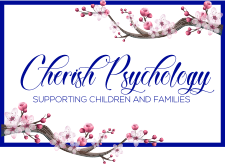Referrals
You do not need a referral from a health care professional to access services. We warmly welcome self-referrals.
Some people may be entitled to see a Psychologist under a Mental Health Care Plan (MHCP), which entitles you to 10 Medicare rebated sessions per calendar year. In order to obtain a MHCP, you will need to make an appointment with your GP/Paediatrician/Psychiatrist who will assess whether your current concerns meet criteria for a plan to be created (please note, it is advised you notify your provider of the nature of your appointment, as a longer consultation may be required in order to formulate the plan). Once a MHCP is in place, you will initially be entitled to access 6 rebated sessions. On completion of the 6th session, you will be required to complete a review with your GP/Paediatrician/Psychiatrist who will then assign a further 4 session if required (please note you cannot access your final 4 sessions until your review has been completed). In order to access your rebated sessions you will be required to bring both your MHCP and a referral letter from your GP/Paediatrician/Psychiatrist to your first appointment. Without both these documents you will not be able to access your rebate.

Your First Session
The content of the first session with a Psychologist will vary depending on your age and your reason for visiting. The information below give a general outline of what your session may look like:
Children aged 2-12
When a child between the ages of 2 and 12 has been referred to our service, the first session will primarily conducted with parents. This allows the Psychologist to take a complete history of the current issues without them having to be discussed in front of the child. The Psychologist will meet the child and discuss their reasons for attending at this appointment also.
The Psychologist will spend time asking questions in order to gain a better understanding of the presenting issues. It can be useful to spend some time before the first session thinking about what the issue is, how long it has been occurring, what seems to make things better/worse, what strategies you have tried and how successful they have been and what you are hoping your child will gain out of accessing support.

The second session will usually start off with both the child and their parent/s in the room. The Psychologist will engage in game playing and “getting to know you” activities and will then ask the parent/s to leave the room so that rapport can continue to be built and the child can become familiar with the environment and therapist. In situations where anxiety is extreme, removal of the parent/s from the session may be done in a step-wise manner. In general all therapy sessions are conducted without the parent present, however the Psychologist may use some session time at the beginning of the appointment to discuss progress and new concerns with parents.
It can be beneficial to the therapy process if the child attending the sessions has an understanding of why they are coming to see the Psychologist in the first place. If you are unsure as to how to approach this subject with your child, please feel free to discuss with your Psychologist at your first session.
Adolescents aged 13-18
If your child is aged between 13-18 we feel it is important for them to be part of the assessment period. In these instances we like to confer with the adolescent and parent and see what form of assessment will suit them.
In many cases the first session will take on a 50/50 split, allowing the Psychologist to see both the parent’s view of current issues/concerns and ascertain the adolescent’s perception. In some instances adolescents prefer to have their parents with them for the whole first session in order to calm nerves and share all appropriate information. Some adolescents prefer to attend the first assessment session alone and not have any parental input into the session. At Cherish Psychology we do our best to accommodate and support our clients to the best of our abilities, starting with the first session.
It is not uncommon for adolescents to resist engaging in therapy. Many teenagers can perceive therapy as another environment where they are going to be told what to do by an adult. At Cherish Psychology we work had to create a balanced relationship with adolescent clients and attempt to support, rather than demand, positive choice making. Having an honest conversation with your son or daughter before bringing them to see a Psychologist is key to supporting them to engage.

